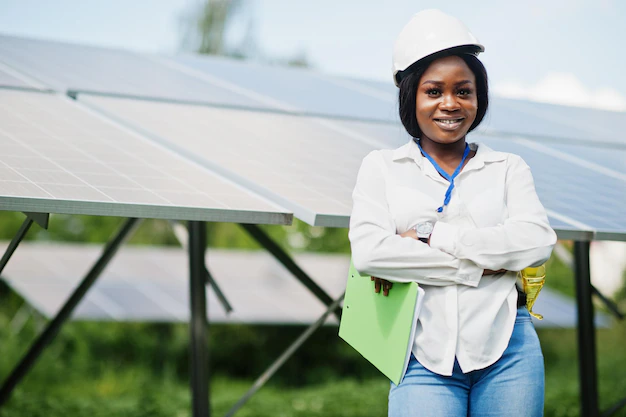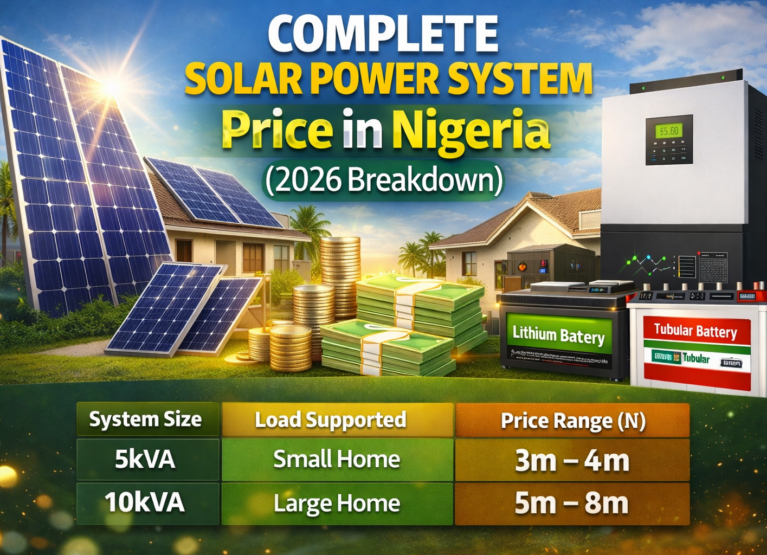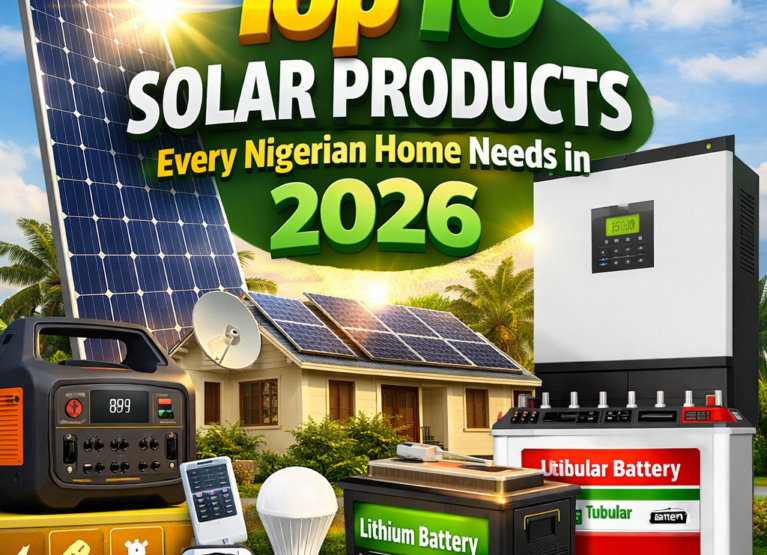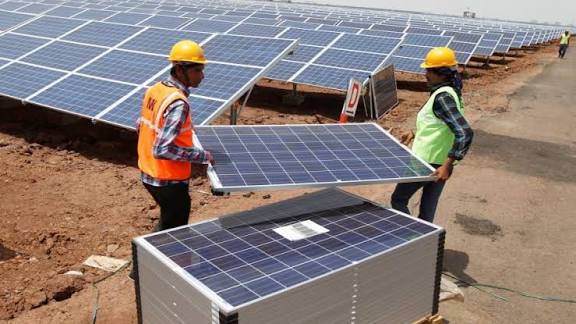Solar Energy vs. Inverter with NEPA – Which is Better?
In Nigeria, we know that power supply from the National Electric Power Authority (NEPA), now known as the electricity distribution companies (DisCos), is very inconsistent and also unreliable.
There are always reports of frequent blackouts, which has made a lot of people look for better alternatives. Among all the options available, lots of people are left with choosing between a solar energy system and inverters that are powered by NEPA.
If you are confused about which of these options is the best for you, do not worry. In this blog post, we will try to break down the advantages and disadvantages of solar power compared to inverter systems with NEPA. By the end of this article, you’ll be able to decide which of these options is great for you.
How Solar Energy Works
The solar energy system attracts sunlight through solar panels to generate electricity. The solar energy system includes solar panels, inverters, and batteries. During the daytime, solar energy gets sunlight and converts it into direct current electricity (DC).
The inverter will then change this direct current electricity into alternating current (AC), which we use to power our home and appliances.
If your system has a battery backup, it means you can easily store up excess electricity, which you can use either during the nighttime or when the weather is cloudy.
This is one of the reasons why lots of Nigerians see solar energy as a very dependable and reliable power source.
Advantages of Solar Energy
Reliable and Consistent Power Supply
One of the major advantages of solar energy is the fact that it is reliable and promises a consistent power supply. Once you install your solar energy, you are sure of a stable electricity supply, which means how much you depend on the national grid will be greatly reduced or even eliminated.
You Save Money
There is no doubt that the initial cost of investment in the solar system is usually high, but trust us, solar energy is worth it. There is going to be a significant reduction in how much you pay for electricity bills. In the long run, you won’t have to worry about the crazy NEPA bills or the unexpected tariff increases that happen frequently in Nigeria
It is very Good for our Eco System
Solar power is 100% clean and also renewable, unlike NEPA, which has to rely too much on gas and fossil fuels, causing air pollution and affecting the climate.
Low Maintenance
A lot of people think maintaining a solar system is a big deal. Actually, it is not a big deal. Solar panels need very minimal maintenance. All you need to do is clean them occasionally and check their systems from time to time. Unlike generators, they do not need you to buy fuel or take them to the mechanic for maintenance frequently.
Disadvantages of Solar Energy
High Initial Cost
One of the major disadvantages of installing solar systems is that it could be really expensive to set up. You will need to buy solar panels, an inverter, a battery, and other accessories. All these could be really expensive upfront. For someone who doesn’t have the luxury, it could be really difficult and financially challenging to set up a solar system.
Weather-Dependent
Solar power depends on sunlight in order to get the required energy to power your home. If you are staying in areas that have limited sunshine, or maybe during rainy days, the production of solar energy may drop significantly.
Needs Space for Installation
For you to be able to generate sufficient electricity, your solar panels need more than enough space on rooftops or open land. If your house happens to have very limited space, this could be very challenging, affecting the chances of your solar system working effectively.
Inverter Systems with NEPA
An inverter system with NEPA is possible when you store electricity from the national grid in batteries. What happens is that when there is a power outage, the inverter will automatically switch to battery mode and still supply enough electricity to your home.
The system is a good backup option, but it will still depend on NEPA availability. If, for instance, NEPA does not supply enough power to charge the batteries, the inverter won’t be able to function effectively.
Advantages of Inverter Systems with NEPA
It is not Expensive To Set-up
When you compare this system to solar, inverters with NEPA are relatively cheaper to set up. This is because you don’t need to purchase solar panels, which are very expensive.
Reliable Backup Power
With inverters, you are very sure of instant backup, especially during power cuts. Provided NEPA is stable in your area, your inverter will always be charged.
It Saves Space
With an inverter system, you don’t need all the space in the world. The battery and inverter unit can always be placed anywhere in the house, so there is no need for massive space.
READ ALSO:How to Know Fake Solar Products in Nigeria
Disadvantages of Inverter Systems with NEPA
Dependence on NEPA
One of the major disadvantages of depending on a NEPA inverter system is that if your area happens to experience a very long blackout, your inverters will no longer be able to have enough time to recharge. That means you will be left without power.
High Electricity Bills
Another disadvantage is the fact that when you charge your inverter batteries from NEPA, it is going to add to your electricity bill. What this means is that the more power your inverter consumes, the more NEPA bill you are going to be paying.
Battery Wear and Tear
Your inverter batteries have a very limited lifespan, which means you will eventually have to replace them. This means spending more money.
Solar vs. Inverter with NEPA – Which is Better?
In terms of reliability, solar energy is more reliable because you generate your power independently without relying on NEPA. So, if your area is experiencing frequent power outages, solar should be the best option for you.
If you are considering cost, solar is a higher upfront investment, but it is still going to save you money in the long run.
However, on the other hand, an inverter with NEPA is cheaper initially, but paying electricity bills and replacing batteries is going to cost you more money in the long run.
Finally, solar panels need very minimal maintenance, while inverters need to be replaced frequently.
 English
English
 French
French
 German
German
 Italian
Italian




